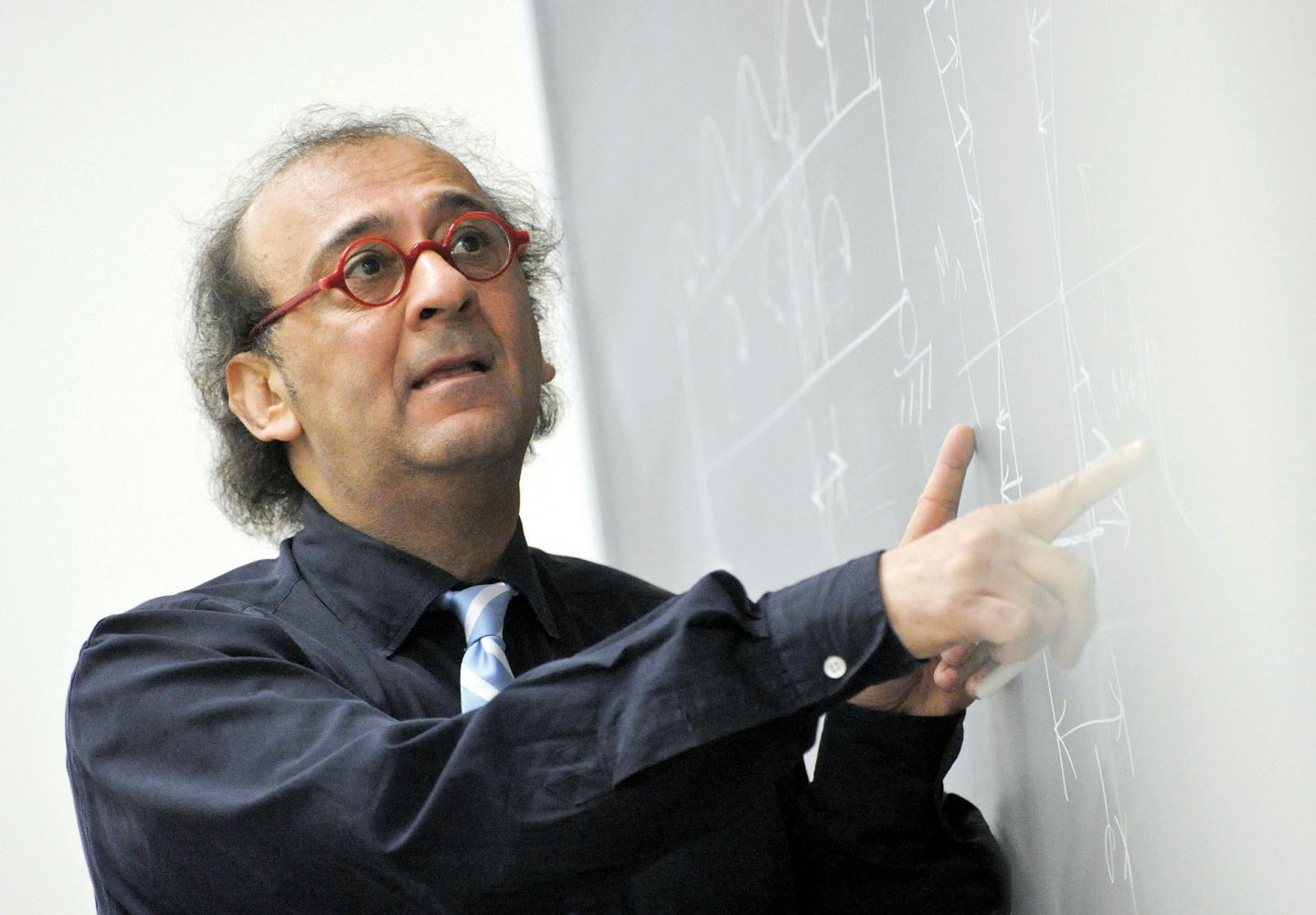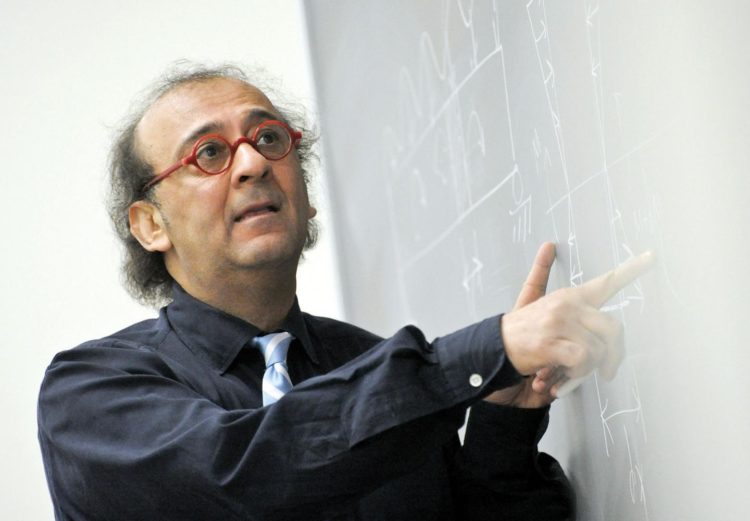Sustainable pipes that last for a century

Credit: UT Arlington
The chair of the Civil Engineering Department at The University of Texas at Arlington has been awarded a $653,000 contract by the Texas Department of Transportation (TxDOT) to test longer-lasting concrete pipes embedded with polypropylene fibers for strength and durability.
The team, led by Ali Abolmaali, Tseng Huang Endowed Professor, will monitor and evaluate the performance of these pipes through robotic inspection of their interior and will scan samples with an electron microscope to test their chemical composition.
“Professor Abolmaali’s research related to synthetic fiber concrete pipes has been on the leading edge of research in this area and has already led to the development of new international standards and acceptance by the American Concrete Pipe Association,” UTA President Vistasp Karbhari said. “The new research project will undoubtedly take this one step further through the assessment of performance in the field–and further cements Professor Abolmaali’s reputation as a leading researcher internationally, as well as the stature of the department as a leader in pipe research across the United States. I’m extremely proud of the way in which he and other faculty have not only pioneered new innovations, but have also enabled the rapid transfer of these into use by industry. This is a true example of impactful university research.”
Abolmaali is an internationally recognized authority on concrete pipes reinforced by synthetic fiber. He wrote a worldwide standard–ASTM C1818 Specification for Synthetic Fiber Reinforced Concrete Culvert, Storm Drain and Sewer Pipe–in 2015 that describes a technically strong and durable reinforcement option that can be used for underground piping. The long-term performance of these pipes, reinforced with polypropylene synthetic macrofiber, was observed in tests in Florida.
ASTM International, formerly known as American Society for Testing and Materials, is an international standards organization that develops and publishes voluntary consensus technical standards for a wide range of materials, products, systems and services.
“We were the first researchers in the world to test and develop synthetic fiber concrete pipes, and we developed the worldwide standard for the first time, too,” Abolmaali said. “We hope that our work with TxDOT will show that these pipes are sustainable with a life span of more than 100 years.”
Previous tests have shown that synthetic fiber-reinforced concrete pipes will last 375 years, which is much longer than steel-reinforced concrete pipes, Abolmaali said.
Abolmaali’s work is an example of Sustainable Urban Communities, one of four themes of UTA’s Strategic Plan 2020. It also reflects the National of Academy of Engineering Grand Challenge to restore and improve urban infrastructure, which states that good design and advanced materials can improve transportation and energy, water, and waste systems, and also create more sustainable urban environments.
“Dr. Abolmaali has long been one of the world’s experts in sustainable structural concrete pipe design and finite element analysis, and his work in writing standards for these pipes is an important part of ensuring that concrete pipes are designed, built and used in highly sustainable ways,” said Peter Crouch, dean of the College of Engineering. “These tests could result in significant savings to Texas taxpayers and ensure that the state’s infrastructure remains strong for years to come.”
In addition to his work with TxDOT, Abolmaali has previously earned a grant from the Tarrant Regional Water District and Water Research Foundation to model the behavior of large-diameter water transmission pipes in different types of soils to establish standards that can be used by the industry in future infrastructure projects.
He also leads a team of UTA civil engineering faculty who are performing academic reviews of policies, practice manuals and guideline specifications for infrastructure in the city of Fort Worth.
###
UTA has been an important TxDOT partner in evaluating and improving the state’s highway infrastructure, with a wide range of projects that include workforce development for concrete paving experts and studies that examine the safety, durability and environmental impact of the state’s roads and bridges. One project to better monitor and predict soil weakness that can lead to slope failures on state highways was recognized by the American Association of State Highway and Transportation Officials as one of 2019’s top 16 high-value research projects nationwide.
U.S. News & World Report’s 2020 “Best Graduate Schools” list ranks the College of Engineering No. 82 in the nation and UTA’s civil engineering graduate program No. 89. In addition, the SR Education group ranked UTA No. 9 on its list of “Best Online Colleges Offering a Master’s in Civil Engineering” for 2019.
–Written by Jeremy Agor, College of Engineering
Media Contact
Herb Booth
[email protected]
817-272-7075
Original Source
https:/





